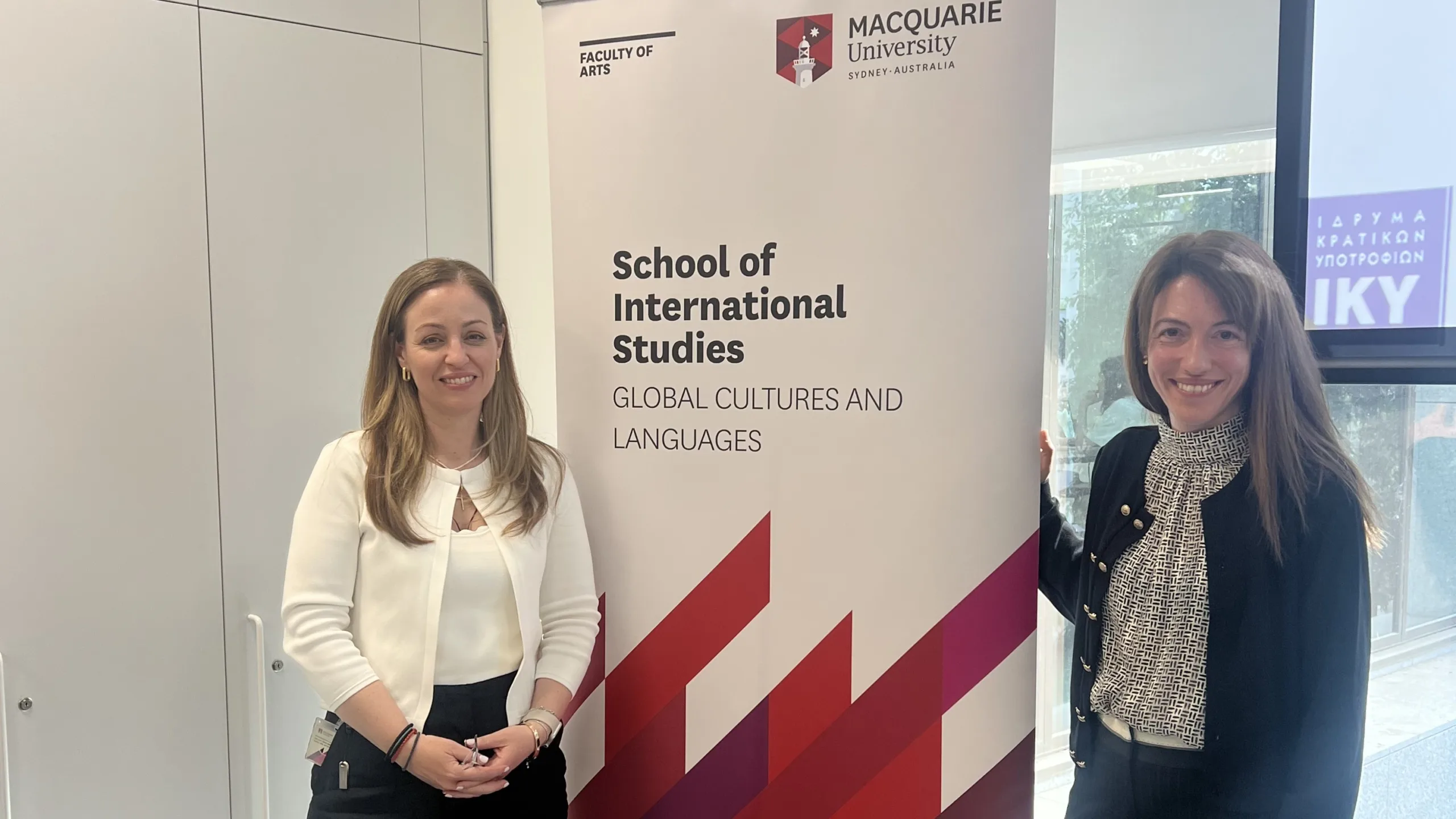Macquarie University’s School of International Studies recently welcomed Dr Ifigeneia Dosi, Assistant Professor of Applied Linguistics at the Democritus University of Thrace, for a two-week research visit held from 6 to 18 October 2025.
The visit, fully funded by the IKY Scholarship Programme for the Development of Collaboration with Education Institutions or Bodies Dispersing Hellenic Culture Abroad, further strengthened educational and cultural ties between Greece and Australia.
Throughout her stay, Dr Dosi participated in a series of academic, educational and community-engagement activities, including guest lectures, teacher-training seminars, and meetings with students from the Modern Greek Studies Program and members of Sydney’s Greek community, reinforcing the shared commitment of both nations to promoting Hellenic culture and bilingual education.
What is the aim of your research, and why did you choose to study the Greek diaspora in Australia?
The primary goal of my research is to explore the language development and literacy skills of bilingual children within the Greek diaspora, with a particular emphasis on Modern Greek as a heritage language. I chose to focus on the Greek community in Australia because it is one of the most historically established and vibrant Greek diasporic communities worldwide, offering a rich context for examining long-term language maintenance and intergenerational transmission and, paradoxically, one of the least studied.
Moreover, Australia’s multicultural education policies and community-based language schools provide a valuable framework for investigating how heritage languages like Greek are supported or challenged across home, school, and community settings.
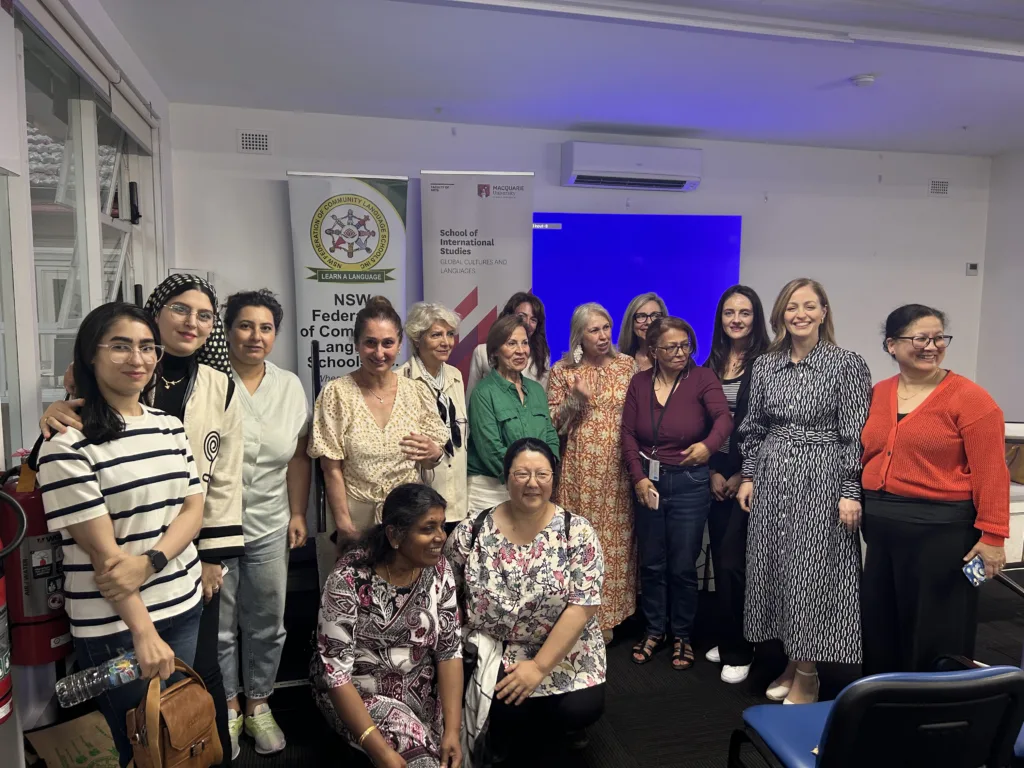
In your view, what is the significance of Modern Greek as a heritage language for children in the diaspora? What are the key factors influencing its maintenance?
Modern Greek, as a heritage language, plays a critical role in shaping children’s cultural identity, emotional connection to their ancestry, and cognitive flexibility. It provides them with a deeper understanding of their roots and enables meaningful intergenerational communication within families.
The maintenance of the language is influenced by a range of factors, including parental attitudes and practices such as the consistent use of Greek at home access to quality heritage language education, community support and cultural engagement, the availability of developmentally appropriate and culturally relevant resources and teaching methods, as well as the perceived status and value of the language within both the family and the wider society. Without active and coordinated support across these domains, the intergenerational transmission of Greek remains at risk.
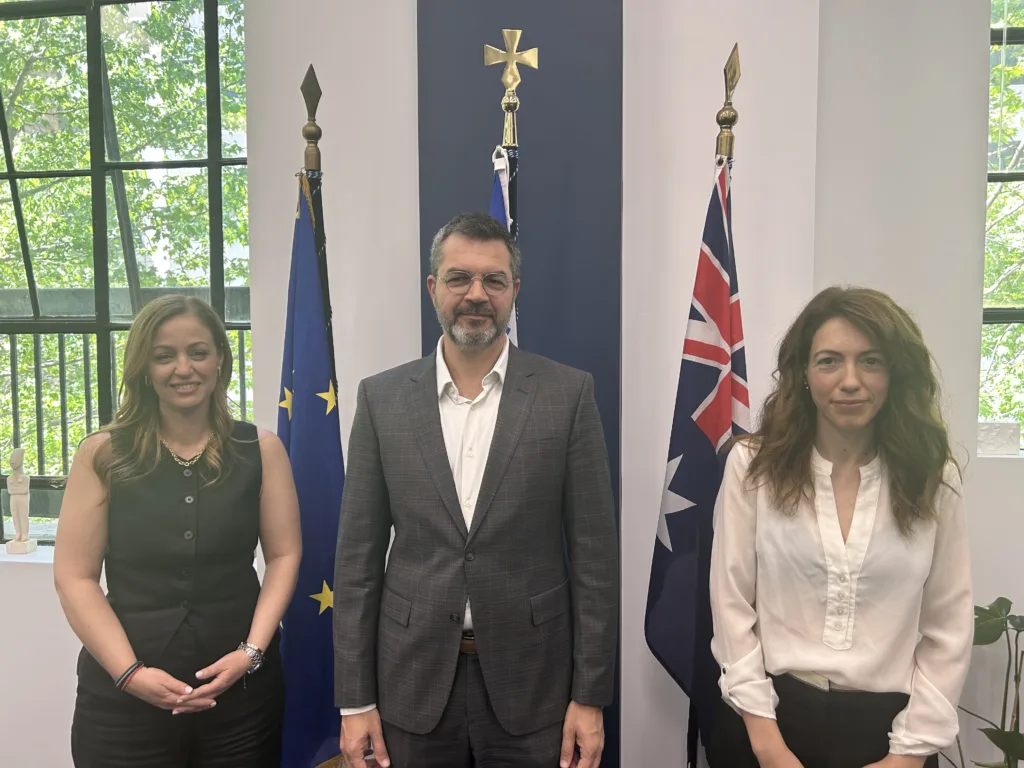
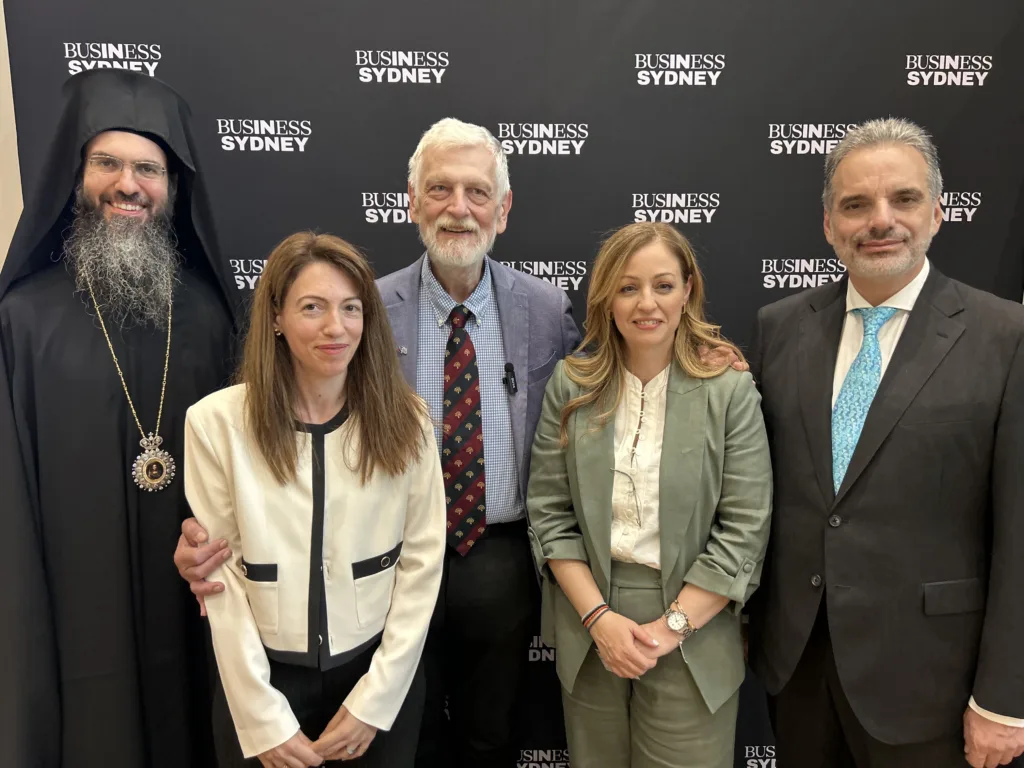
During your stay in Sydney, you engaged with members of the Greek community. Can you tell us about the activities you participated in with Dr. Patricia Koromvokis during your time there?
During my stay in Sydney, I had the privilege of collaborating closely with Dr. Patricia Koromvokis in a series of academic, educational, and community-oriented activities that strengthened both my research and engagement with the Greek diaspora.
At Macquarie University, I presented a guest lecture at the School of International Studies, titled “Two Languages, One Literacy Journey: Literacy Development and Maintenance in Adult Bilinguals,” focusing on bilingual literacy development and maintenance. Additionally, I met with students from the Modern Greek Program (MUGA).
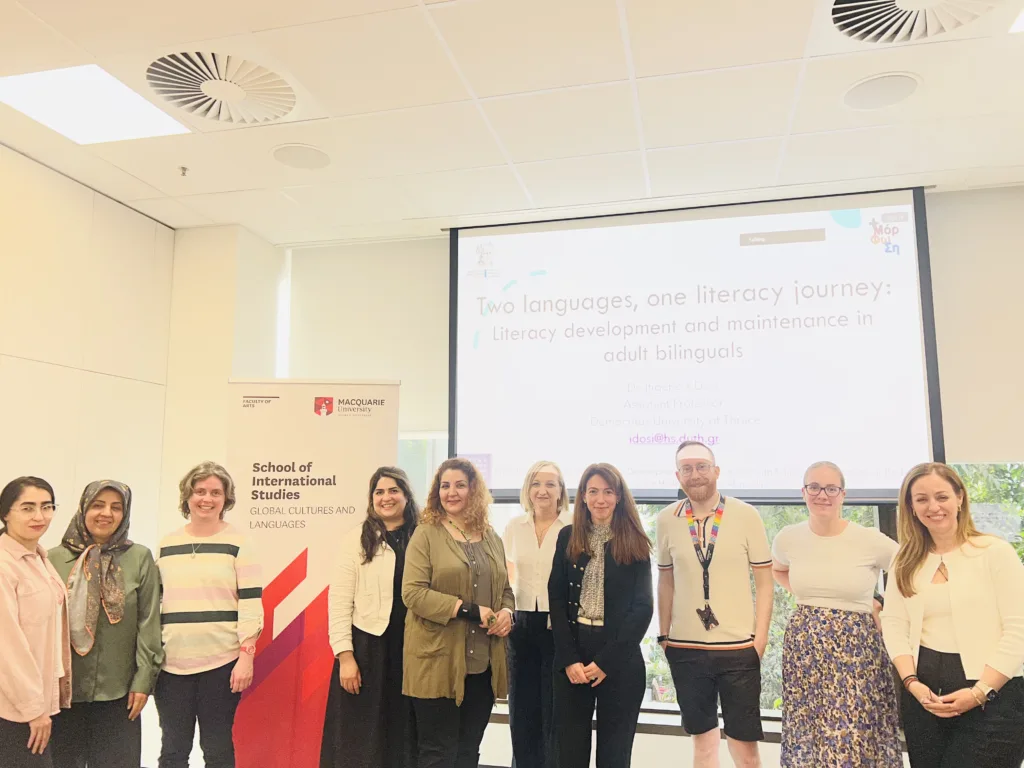
Together with Dr. Koromvokis, we developed a joint research proposal examining the written narrative abilities of bilingual children in the Greek diaspora. As part of this project, we will undertake data collection from students in Greek community schools to support ongoing research on heritage language development.
Beyond the university setting, we co-organised and facilitated a total of nine professional development seminars for teachers and parents across Greek community schools and organizations. These included workshops at All Saints Grammar School, St Spyridon College, St Euphemia College, and the Greek Orthodox Community of NSW School, focusing on practical classroom strategies for supporting Greek as a heritage language.
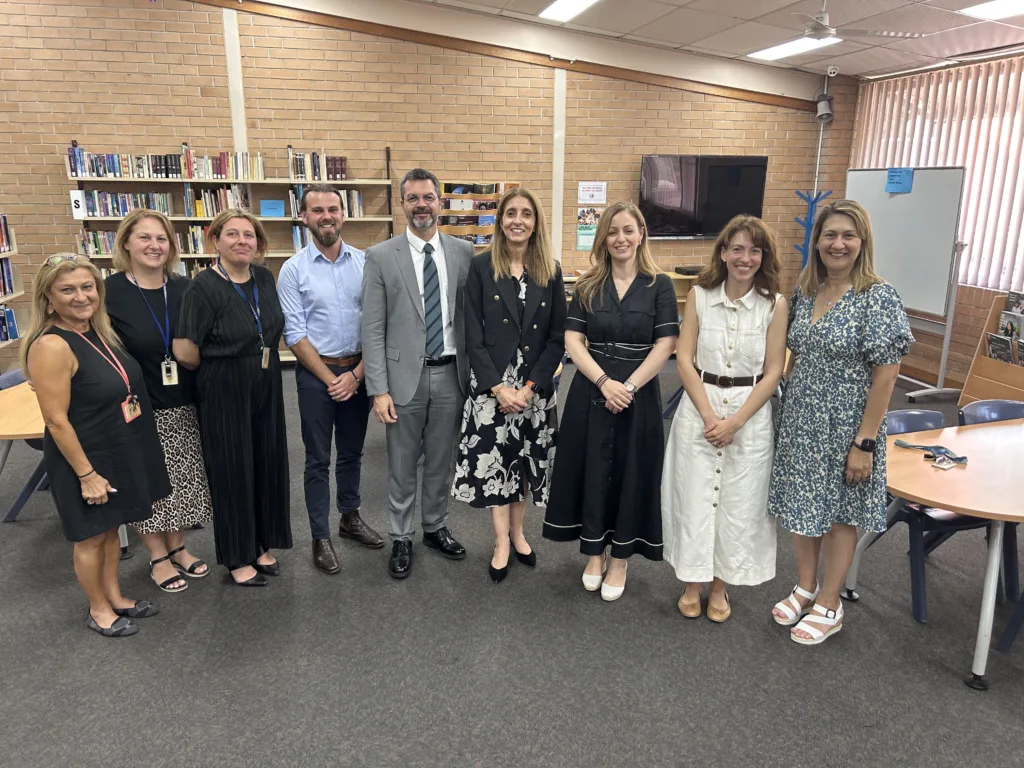
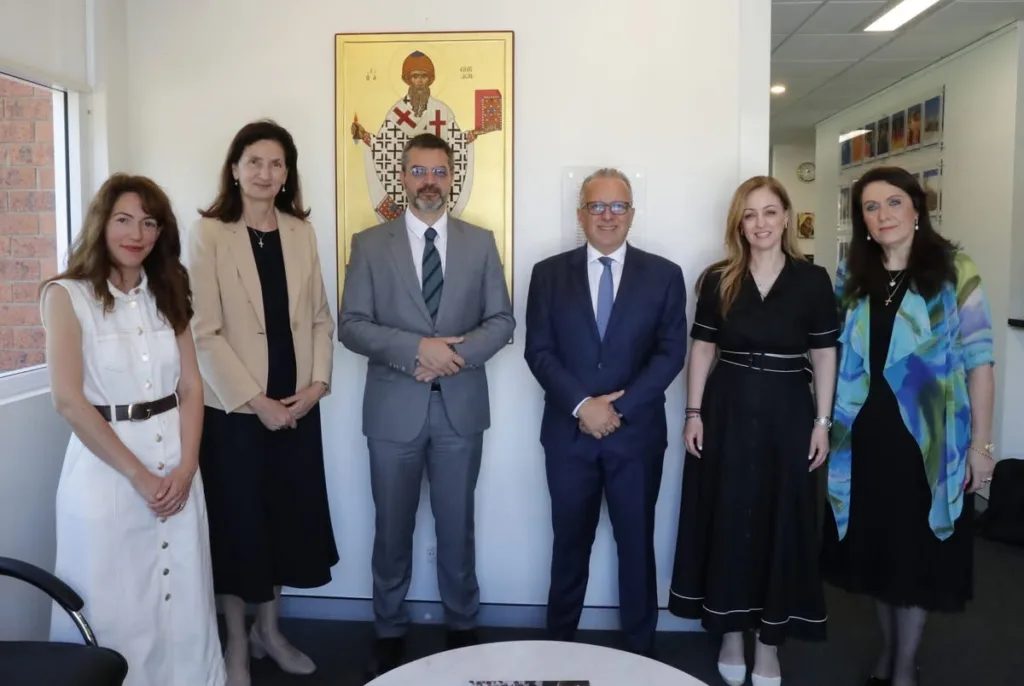
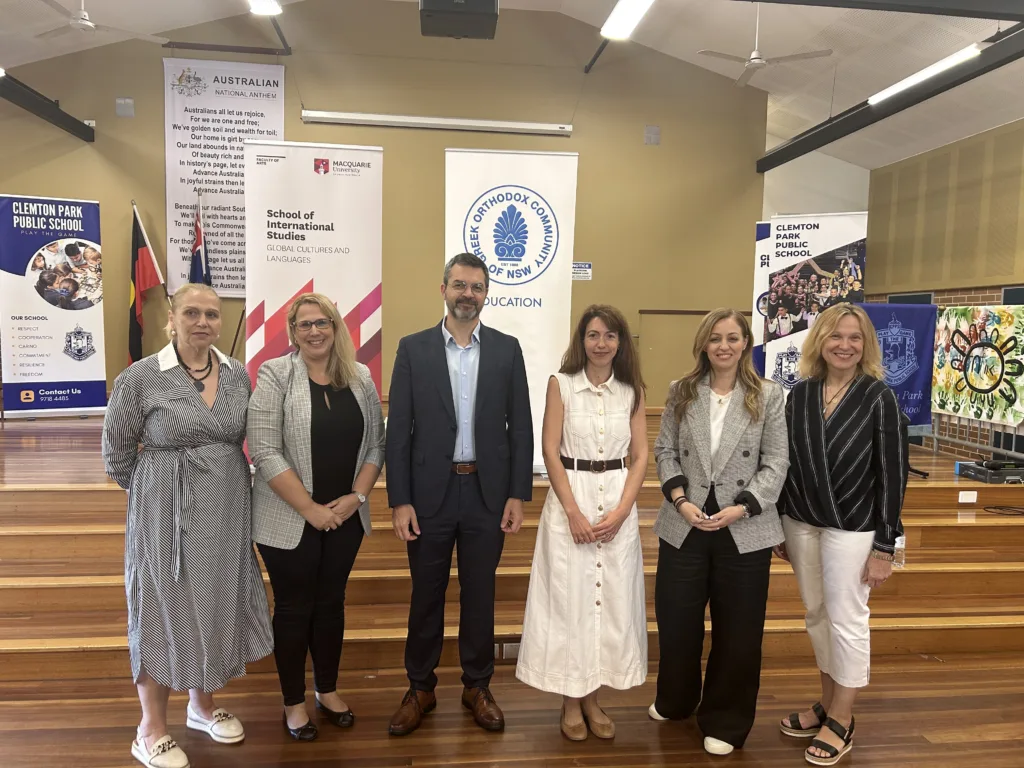
I also delivered seminars through the NSW Federation of Community Language Schools and the Sydney Institute for Community Languages Education (SICLE), addressing topics such as “Supporting Minority Languages in Bilingual Children: Practical Strategies for the Classroom.”
Further sessions included a workshop at the Bilingual Bookshop, titled “Teaching Greek as a Heritage Language: Theory and Practice,” and a community seminar for parents entitled “The Benefits of Speaking Greek at Home with Your Children,” which was accompanied by the distribution of informational materials offering practical guidance for language use in the home environment.
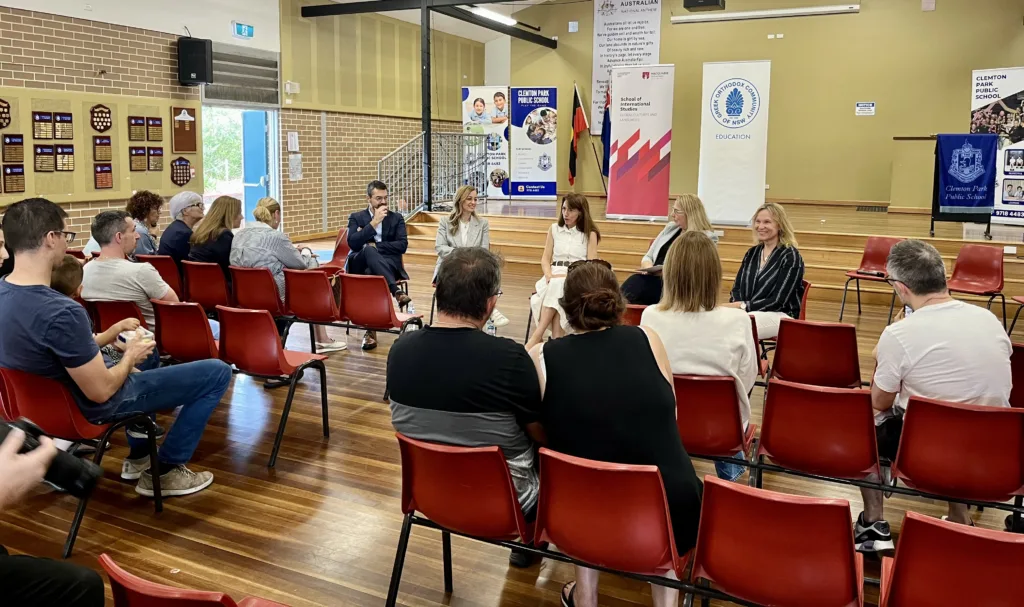
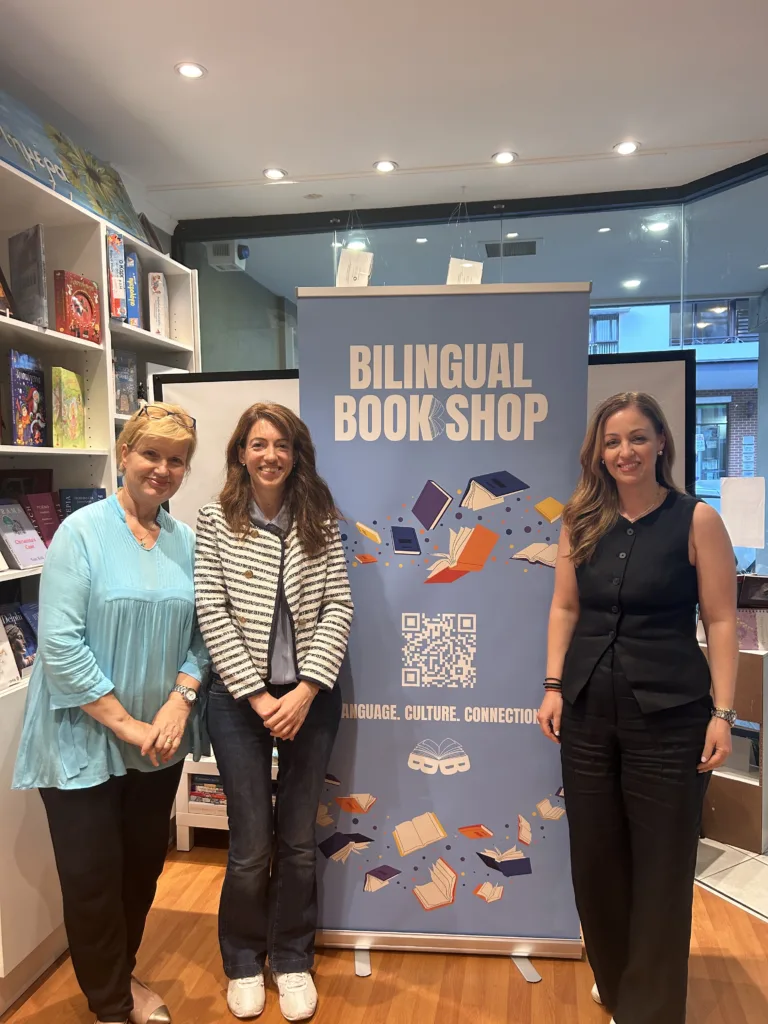
In addition, Dr Koromvokis and I engaged in networking and outreach activities, including meetings with the Consul General of Greece in Sydney, George Skemperis, to discuss ways of promoting Greek as a heritage language, and with representatives of Greek Australian organisations such as PHAROS NSW and members of the wider Greek community, to explore possibilities for future collaborative educational initiatives.
How can the education sector, parents, and cultural organisations within the diaspora more effectively support the bilingual development of children?
Effective support for heritage language maintenance requires a holistic and collaborative approach. Educational institutions should provide systematic, research-informed instruction in heritage languages, integrate culturally responsive pedagogies, and ensure that teachers receive adequate training in bilingual education.
Parents also play a vital role by consistently using the heritage language at home, fostering positive attitudes toward bilingualism, and engaging children in authentic Greek literacy experiences such as reading books, watching media, and sharing stories in Greek.
Likewise, cultural organisations contribute by creating immersive, intergenerational, language-rich environments through events, clubs, religious services, and summer programs that strengthen both linguistic competence and cultural identity. Moreover, joint initiatives such as parent–teacher workshops, bilingual educational resources, and community-led campaigns can further enhance children’s motivation, engagement, and exposure to Greek across multiple contexts.
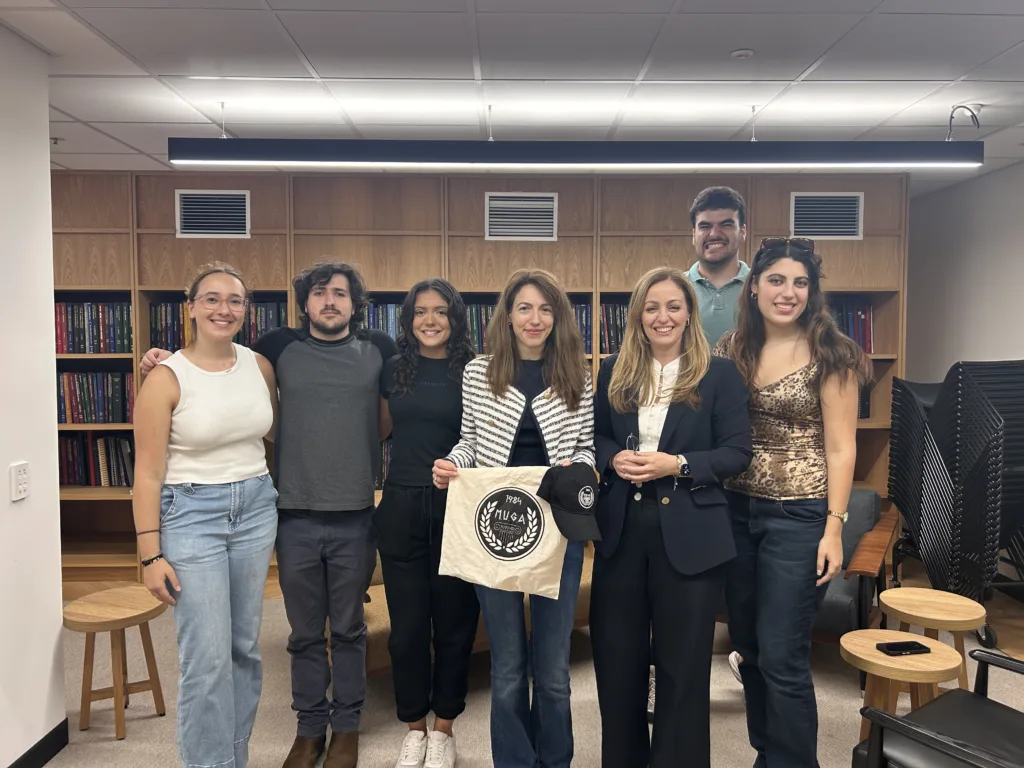
Based on your experience, how do you see the future of the Modern Greek language within the diaspora, and what are the next steps in your research in this field?
The future of Modern Greek within the diaspora presents both challenges and opportunities. While there is an evident risk of language attrition and potential loss, particularly among third- and fourth-generation speakers, there is also a growing recognition of the cognitive, cultural, and emotional benefits of bilingualism. Community-driven initiatives, research-informed educational practices, and the use of technological tools such as digital learning platforms and Greek language apps offer innovative pathways for maintaining interest, proficiency, and intergenerational transmission.
The next phase of our research with Dr Koromvokis will focus on conducting empirical studies that examine the linguistic development of bilingual children in the diaspora, as well as implementing and evaluating classroom practices that support the development of Greek oral and written skills. Finally, we plan to develop practical toolkits for educators and parents designed to strengthen the use and sustainability of Greek in bilingual contexts.
